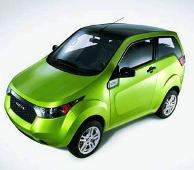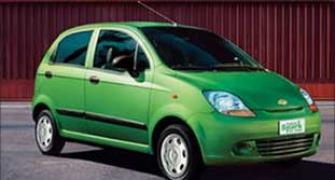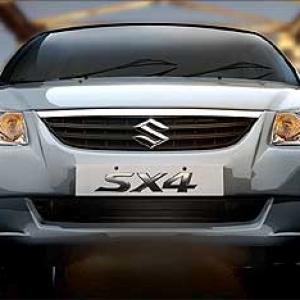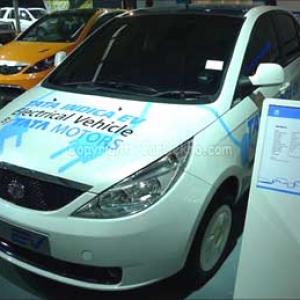 While Mahindra & Mahindra has taken a lead in development of electric vehicles by buying the majority stake in Reva Electric Car Company, other car makers are also developing concept vehicles to cater to the emerging demand for EVs in India in the years to come.
While Mahindra & Mahindra has taken a lead in development of electric vehicles by buying the majority stake in Reva Electric Car Company, other car makers are also developing concept vehicles to cater to the emerging demand for EVs in India in the years to come.
At the moment, that demand is still quite small.
By industry estimates, less than five per cent of the passenger car market in India would comprise electric cars over the next five-seven years, at 1,75,000 units, when the industry size would double to 3.5 million units, as against over 1.6 million in 2009.
Globally, it is anticipated that by 2020, five per cent or nearly two million cars would be EVs.
Maruti Suzuki India, country's largest passenger car manufacturer, had showcased the SX4 hybrid and an electric vehicle on the platform of its recently launched Eeco.
Its Japanese parent, Suzuki Motor Corporation, already has an electric van called Every+ and a plug-in hybrid version of Swift.
In fact, Maruti is also developing some demo cars, both hybrids and EVs, for the coming Commonwealth Games and it feels these vehicles could be used for future development of EVs.
Likewise, there is i10 Electric from Hyundai Motor Corporation, Indica electric from Tata Motors, expected to debut in Norway, Denmark and the UK towards the end of 2011, and to be followed by the Indica Vista electric later.
The Chevrolet Volt that would be launched by General Motors in the US towards the end of 2010, and the Fluence, Twizy, Kangoo and Zoe being jointly developed by Renault and Nissan for commercial launch in Israel and Europe towards the end of 2011, are some other EVs that would ply on Indian roads in the days to come, not to mention the recently launched Toyota Prius hybrid.
"Though the growth in demand for electric vehicles will not be as fast in India as in developed countries, eventually we will have more and more young and environment-conscious people in metros and big cities who would buy these vehicles, provided they are affordable," said Rakesh Batra, national leader (automotive practice), Ernst & Young.
Cost hurdles
However, except Prius, already selling in India, most of these cars are yet to be commercially launched here, courtesy the high duty structure that makes these economically unviable, lack of component suppliers for such vehicles and insufficient infrastructure for charging such vehicles.
"Though we have hybrids and electric cars in our portfolio, we are far from commercialisation of these vehicles in India, as most manufacturers are still struggling to find suppliers for components of these vehicles.
"Consequently, the cost of ownership of such vehicles is very high and therefore not viable from the sheer consumer point of view, as of now," said I V Rao, executive director (engineering), Maruti Suzuki India.
Companies like Toyota Kirloskar Motors and Honda Siel Cars India had earlier tried to create awareness about greener technologies.
"With the Prius hybrid, we are trying to generate awareness about greener technologies in the country and we hope that in five to 10 years from now, there would be demand for such cars, as more and more people would get environment-conscious," said Sandip Singh, deputy managing director, Toyota Kirloskar Motors.
However, Honda Siel Cars India had to withdraw the Civic hybrid from the Indian market within months of its launch in 2008.
The company had managed to sell just 300 units, a majority of these at a discounted rate, after it slashed the prices by Rs 10 lakh (Rs 1 mlllion).
"There is a massive scope for all sizes of electric cars in India, especially in congested metros.
"However, unless we get huge government support for R&D )research and development) on electric vehicles and development of charging stations, it is impossible for us to drive the EV programme in India in the near future, despite Renault Nissan having the largest portfolio of EVs globally," added Ashish Sinharoy, vice president, Renault India.
Even electric two-wheelers have failed to make much of a dent in the Indian market. It is estimated that a mere 1,50,000 of these units would be sold in the domestic market in 2010.
This would be less than two per cent of the total two-wheeler industry in India.








